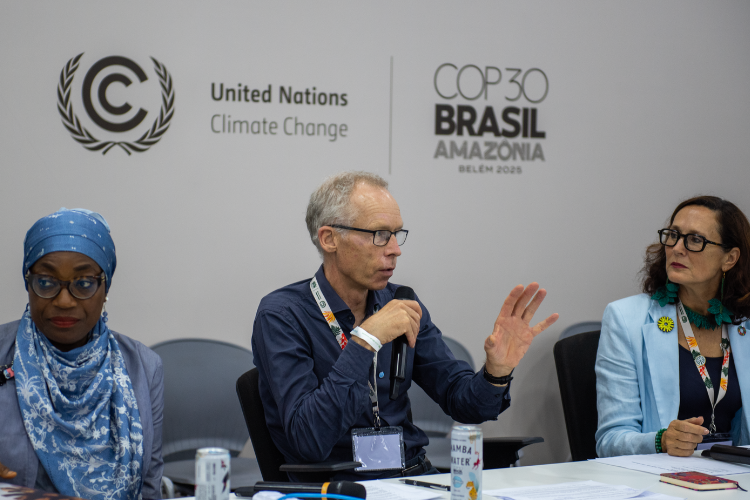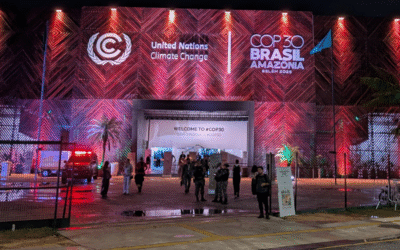COP30 shows progress is possible, but we must take a systems approach
24/11/2025

By Will Tucker, Co Director (Communications and Resource Mobilization), Global Commons Alliance
Going into the COP30 summit in Belem, Brazil this year one could have looked at the political environment and felt some disillusionment. The US left the UNFCCC (again) this year, international conflict has understandably taken up a lot of diplomatic attention and competition over trade and other political “spheres of influence” could have sapped all attention.
But that’s not how the climate movement works: we are optimists, we are tenacious, we are resolute in our mission to turn the passage of humanity toward a safe and just future. Our mission is moral and founded in essential laws of science.
Although COP30 hasn’t delivered a clean-sweep of perfect outcomes for people and the planet (that was never the expectation) climate diplomacy is, and has always been about deliberative, iterative negotiation towards ever-improved action. And like COPs before, Belem delivered. Carbon Brief and others, have written up helpful in depth analysis of the Belem negotiation outcomes. As we highlighted at events in Belem (co-hosted with Earth4All and Earth Commission) the outcomes of Belem highlight the need for systems approaches to change.

SCALE AND PACE OF CHANGE
Following the conclusion of talks, Laurence Tubiana, President and CEO at European Climate Foundation, has highlighted “Multilateralism stood firm in a difficult geopolitical moment… The head-in-the-sand resistance of a few will not slow the rise of clean energy or deter the many countries committed to a just and orderly transition.”
As civil society, we need strategies which continue to press the majority of governments to act, and while we celebrate progress, we still need to improve the scale and pace of change. We also need to act to get those governments and leaders whose heads are in the sand to recognize that their economies, populations and electorates will sorely regret the delays to progress which they are causing.
These are distinct goals, but each requires a systems change approach in order to succeed. Our new approach at the Global Commons Alliance seeks to do this. It combines influence across culture and society, governance and political engagement, and economic and business engagement, all founded in excellent earth system and solutions science. Influence across these areas has to be combined to get popular support, political leadership and business action making planetary stewardship possible.
SYSTEMIC APPROACHES
At the same time as influencing national action, we also need to influence the process of international negotiations; making them more conducive to success. Excellent work by the Climate Governance Commission and others, is ongoing in seeking to improve the structure and process of climate diplomacy and the institutions which enable that diplomacy in order to make progress towards sustainable planetary stewardship easier, better and more likely.
We look forward to working with our members and the wider ecosystem to progress systemic approaches over the coming months and years.
